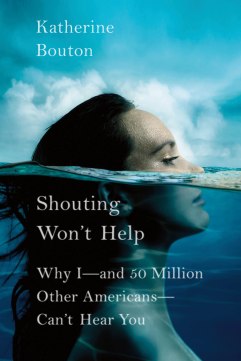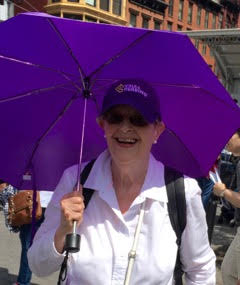
This past week, we moved to a new apartment and I found myself without high-speed internet — no DSL or Wi-Fi connection at home — for 10 (long) days.
It was an uncomfortable reminder of how vitally important the internet is for people with hearing loss. I did have a smartphone, so I was not completely cut off from communication, but it was very limited. Here’s what no home internet meant for me:
No captioned telephone. I hear on the phone, but not well. Even using the telecoil setting on my hearing aid does not make the speaker’s voice completely clear. Captioned telephones depend on DSL or Wi-Fi for the captioning part of the call, which appears on the screen of your special phone. Two of the major manufacturers of these captioned phones are CapTel and CaptionCall. They are available free of charge to people who can provide proof of their hearing loss, and oftentimes their representative will come to your home to set it up. But you do need a high-speed internet connection.
For captions on cellphones, a company called Innocaption has been developing a system to provide simultaneous voice and captioning. It’s still got some kinks to work out, but when it works, it’s terrific. Unfortunately, at least on my phone (an iPhone 5S) and with my carrier (Verizon), I cannot get voice and captions at the same time unless I have DSL or Wi-Fi. (Innocaption, which has very responsive consumer support, confirmed this in an email: “Unfortunately, Verizon supports voice and data at the same time from iPhone 6, not iPhone 5/5s.”) I need that connection to Wi-Fi.
This is a problem anywhere outdoors, but I live in a big city, and without captions my cellphone is close to useless on the street. This is because electromagnetic interference produces a buzz in telecoil mode that drowns out talk. I guess I need to spring for a new iPhone.
I did have Ava. Ava is a voice recognition system used for in-person conversations. Two or more people sign on to the app on their smartphones. Their voices are simultaneously captioned on each user’s phone, color-coded by speaker. Ava is still in the testing stage, but you can download it here. The version I was using required Wi-Fi, but the newest version, which I downloaded (free) today, no longer requires Wi-Fi. I had a nice conversation with someone in the dog park. I could understand him over the yapping dogs because he was talking into my Ava-equipped phone.
Email was difficult. I’m a voluminous emailer, not only because I’m hard of hearing, but also because of the work I do both professionally and as a volunteer. The volume of mail I receive gets lost on the small screen of a smartphone. For those of us with hearing loss, email tends to be a lifeline for communicating with others. I did email on my smartphone (using satellite technology rather than Wi-Fi). But once I had Wi-Fi again and went back through the emails on my computer, I saw I’d missed quite a few. Also, no matter what size phone screen you have, it’s still pretty small.
Sherry Turkle‘s 2011 book, Alone Together: Why We Expect More from Technology and Less from Each Other, prompted consternation about the “death of conversation” due to an over-dependence on technology.
But for those of us with hearing loss, technology is sometimes the only way we can communicate. In a restaurant we may be looking at our smartphones, but that’s because we’re getting captioning from a program like Ava telling us what the speaker across the table is saying. At the theater we may be looking at a smartphone, but that’s because we’re lucky enough to be at a performance with I-Captions or Globetitles.
Texting and emailing are conversation for people with hearing loss. I was surprised by how handicapped I felt without high-speed internet. I lived two-thirds of my life before the internet came along, so you’d think I’d know how to manage for a week or so. I wasn’t as hard of hearing then, it’s true. But also, once you’ve enjoyed the advantages that Wi-Fi and DSL offer those with hearing loss, it’s really hard to give them up.
This post first appeared on AARP Health on 10/18/2016.



